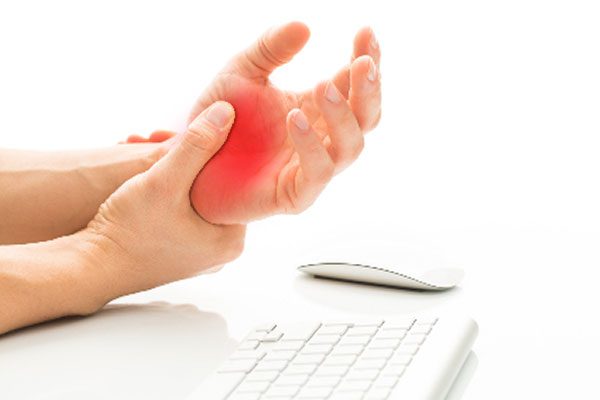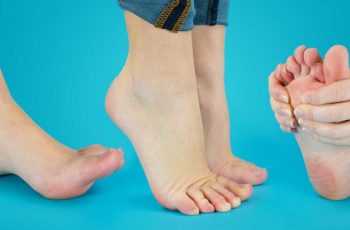Neuropathy is one such disease. So that is why there are vitamins for numbness and tingling for specific needs available because of this. After spending a long period of time sitting cross-legged or with one’s head resting on a crooked arm, numbness and tingling can occur. In contrast, long-term tingling and numbness is usually an indicator of neurological or nerve damage.

What are Numbness and Tingling?
The sensation of tingling in the hands or feet, or in both, is a common and irritating one. Such tingling may be harmless and short-lived in some cases. This could be because your arm is twisted under your head while you sleep, putting pressure on the nerves. If you cross your legs for an extended period of time, pressure on the nerves may be the cause.
Tingling in the hands and feet can be severe, episodic, or even chronic in some cases. Pain, itchiness, numbness, and muscle wasting are all possible side effects. This can be an indication of nerve damage caused by a variety of conditions such as repetitive stress injuries, bacterial or viral infections, toxins, or systemic diseases like diabetes, all of which can cause tingling.
Diabetic neuropathy is one of the most common causes of neuropathy, but it can also be caused by conditions like lupus and Guillain-Barre syndrome, as well as rheumatoid arthritis. In some cases, chemotherapy can also cause neuropathy.

What are vitamins for numbness and tingling?
Recent studies have shown that dietary supplements can help some people with neuropathy alleviate the symptoms they are experiencing. In addition, in comparison to other forms of treatment, nutritional supplements typically have fewer side effects. Despite this, you should always consult your physician before discontinuing any conventional treatments or beginning any new dietary supplements.
Acetyl-L-Carnitine
As an amino acid and antioxidant, acetyl-L-carnitine helps maintain healthy nerve cells, reduce nerve pain, and increase energy levels. In addition, chemotherapy-induced neuropathy and cancer-associated fatigue were both alleviated by this treatment. It can be a supplement in meat, fish, poultry, and dairy products.
Alpha-Lipoic Acid
Antioxidant alpha-lipoic acid has been shown to improve nerve function, alleviate symptoms of nerve dysfunction, and reduce blood sugar levels. Consuming certain foods can also be used to administer the drug intravenously. These foods include Brussel sprouts, brewer’s yeast, and broccoli.
B Vitamins
B vitamins are an essential part of a healthy nutrition plan to keep the nervous system running smoothly. Neuropathic symptoms can be alleviated with the help of vitamins B-1, B-6, and B-12. Pain and inflammation can be reduced by taking thiamine, also known as vitamin B-1, and vitamin B-6 protects the nerve end, however, neuropathy damage. Neuropathy can be caused by a B-12 deficiency, which is why it is essential to get enough of this vitamin. You can get your B vitamins by taking a vitamin supplement or by eating foods fortified with them.
Curcumin
Turmeric contains curcumin, a powerful antioxidant with anti-inflammatory and analgesic properties, which is why it is so popular. Curcumin has been found to prevent neuropathy-related chronic pain when taken early on. Also, studies have demonstrated that it helps reduce pain and inflammation symptoms. It can be taken as a supplement or added to certain foods as a herbal supplement.
Fish Oil
Inflammation and nerve damage can be repaired with the aid of fish oil. According to research, fish oil has been shown to slow and even reverse neuropathy in some cases. It also encourages the growth of new neurons. As a supplement or found in fish such as salmon, sardines, mackerel, and cod liver oil, as well as in oysters and anchovies. Walnuts, canola oil, chia seeds, flaxseeds, and soybeans contain omega-3 fatty acids, which are also found in fish oil. It is easily my favorite vitamin for numbness and tingling.
N-Acetyl Cysteine
An anti-inflammatory and antioxidant amino acid, N-Acetyl-Cysteine, is used to treat nerve pain and reduce inflammation in the body. Researchers have discovered that it eases nerve pain, enhances motor coordination, and lessens the effects of nerve damage. In addition, it can be taken as a supplement because it is not found in food.
FAQs (Frequently Asked Questions)
Q: What vitamin deficiency causes numbness?
A: The following are examples of vitamin and mineral deficiency that could lead to neuropathy:
- Vitamin B-12. B-12 deficiency is more common in vegans and vegetarians who don’t consume any animal products. Anemia can also be caused by a deficiency in vitamin B-12.
- Copper. Deficiency in copper can lead to nerve damage and excessive zinc in the blood. Copper deficiency may necessitate a lifetime of treatment.
- Vitamin E. As an antioxidant, Vitamin E is essential. Vitamin E deficiency can harm the nervous system. Vitamin E deficiency can be caused by spinocerebellar syndrome, as well as unusual diets and other conditions.
- Vitamin B-6. When taken in excess or insufficiently, vitamin B-6 can result in peripheral neuropathy. B-6 deficiency can be brought on by a poor diet or eating disorders.
Q: What vitamin deficiency causes tingling?
A:
- Calcium deficiency (hypocalcemia)
-
Magnesium deficiency (hypomagnesemia)
-
Vitamin B5 (pantothenic acid) deficiency
-
Vitamin B12 (pantothenic acid) deficiency, can lead to anemia, a cause of paresthesia
-
Vitamin E deficiency
Q: Does vitamin D cause numbness?
A: It is fat-soluble, which means it is stored in both your fat cells and your liver as fat-soluble vitamins. Calcium deposits in soft tissues, kidney damage, and kidney stones are all possible side effects of taking too much vitamin D. Muscle problems, such as numbness, fatigue, bone pain, loss of appetite, weight loss, extreme thirst, vomiting, diarrhea, constipation, sore eyes, and itchy skin, are all symptoms of excessive vitamin D consumption.




